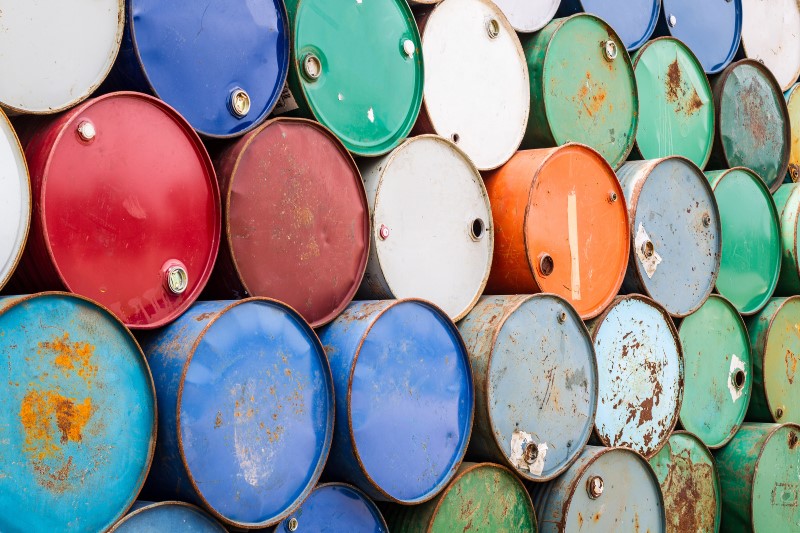US to Release Oil from Reserves; OPEC+ Rebuffs Call for More Crude
WASHINGTON (Reuters) – The United States said on Tuesday it would release millions of barrels of oil from strategic reserves in coordination with China, India, South Korea, Japan and Britain to cool prices after OPEC+ producers repeatedly ignored calls for more crude.

U.S. President Joe Biden, facing low approval ratings amid rising inflation ahead of next year’s congressional elections, has repeatedly asked the Organization of the Petroleum Exporting Countries and its allies, known as OPEC+, to pump more oil.
Tuesday’s announcement that the U.S. would release 50 million barrels was made after an official said Washington had approached major Asian energy consumers to help to drive down oil prices from near three-year highs. Britain had not previously been mentioned as being involved.
It was the first time Washington had coordinated such a move with some of the world’s largest oil consumers, officials said.
OPEC+, which includes Saudi Arabia and other U.S. allies in the Gulf, as well as Russia, has rebuffed requests to pump more at its monthly meetings. It meets again ‘Dec. 2 to discuss policy but has so far shown no indication it will change tack.
The group has been struggling to meet existing targets under its agreement to gradually increase production by 400,000 bpd each month – a pace Washington sees as too slow – and it remains worried that a resurgence of coronavirus cases could once again drive down demand.
Current high prices have been caused by a sharp rebound in global demand, which cratered last year, early in the pandemic.
TALKING WITH PARTNERS
The release from the U.S. Strategic Petroleum Reserve would be in a loan and a sale to companies, U.S. officials said. The 32 million barrels loan will take place over the next several months, while the administration would accelerate a release of 18 million barrels in sales already approved by Congress.
“We will continue talking to international partners on this issue. The president stands ready to take additional action if needed and is prepared to use his full authorities working in coordination with the rest of the world,” a senior U.S. administration official told reporters.
India said in a statement it would release 5 million barrels, while Britain said it would allow the voluntary release of 1.5 million barrels of oil from privately held reserves.
South Korea said details on the amount and timing of the release of oil reserves would be decided after discussions with the United States and other allies.
Japanese media said Tokyo would announce its plans on Wednesday.
Benchmark Brent crude was trading above $80 a barrel ‘Tuesday, up from its levels before the announcement but still well below last month’s three-year high of more than $86.
The effort by Washington to team up with major Asian economies to lower energy prices sends a warning to OPEC and other big producers that they need to address concerns about high crude prices, up more than 50% so far this year.
Suhail Al-Mazrouei, energy minister of the United Arab Emirates, one of OPEC’s biggest producers, said before details of the release from U.S. reserves was announced that he saw “no logic” in lifting UAE supply for global markets.
An OPEC+ source said releasing reserves would complicate calculations for OPEC+, as it monitors the market on a monthly basis.
HEIGHTENED TENSION
“These developments point to a period of heightened political tensions between the world’s biggest consumers and OPEC+, which implies increased oil price volatility,” said Henning Gloystein at Eurasia Group.
The United States historically has worked on any coordinated stocks release with the Paris-based International Energy Agency (IEA), a bloc of 30 industrialized energy consuming nations.
Japan and South Korea are IEA members. China and India are only associate members.
Commerzbank analyst Carsten Fritsch described the U.S. release of 50 million barrels as “quite significant” and more than expected before the announcement. “The question is the time horizon of the release and how OPEC+ will react,” he added.
Under a swap from U.S. reserves, oil companies taking crude must return it - or the refined product – plus interest. Swaps are typically offered when oil firms face supply disruptions, such as a pipeline outage or damage from a hurricane.
Outright sales are less common. U.S. presidents have authorized emergency sales three times, most recently in 2011 during a war in OPEC member Libya. Sales also took place during the Gulf War in 1991 and after Hurricane Katrina in 2005.
Related News
Related News

- Keystone Oil Pipeline Resumes Operations After Temporary Shutdown
- Freeport LNG Plant Runs Near Zero Consumption for Fifth Day
- Biden Administration Buys Oil for Emergency Reserve Above Target Price
- Mexico Seizes Air Liquide's Hydrogen Plant at Pemex Refinery
- Enbridge to Invest $500 Million in Pipeline Assets, Including Expansion of 850-Mile Gray Oak Pipeline
- Enbridge Receives Approval to Begin Service on Louisiana Venice Gas Pipeline Project
- U.S. to Acquire 3 Million Barrels of Oil for Emergency Reserve in September
- AG&P LNG Acquires 49% Stake in Vietnam's Cai Mep LNG Terminal
- BP's Carbon Emissions Increase in 2023, Ending Decline Since 2019
- Texas Sues EPA Over Methane Emission Rules for Oil and Gas Sector




Comments